Afghanistan War, CIA Sponsored Terror, Civil Liberties, Criminalizing Dissent, FBI Intrusion, Green Scare, Habeas Corpus, Human Rights, Iraq Veterans, Iraq War, Military Tribunal, Political Prisoner, Surveillance, Targeting Muslims, Truth to Power, War Resister
Podcast: Play in new window | Download
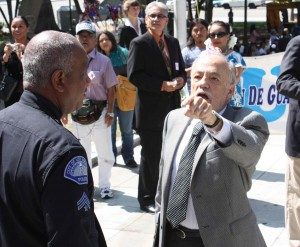
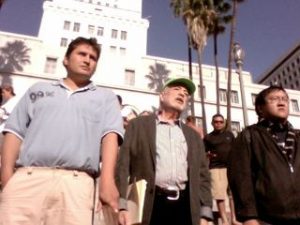
Lawyers You’ll Like : Attorney Jim Lafferty
Periodically we feature a segment on Law and Disorder called Lawyers You’ll Like. Our guest today is attorney Jim Lafferty. Jim has been a lawyer and movement activist in Detroit, New York City, and Los Angeles since the 1960s when he served as executive director of the National Lawyers Guild and carried out civil rights work in the deep South. He was one of the national leaders of the anti-war movement during the Vietnam War. He also headed up the very successful National Lawyers Guild chapter in Los Angeles for 25 years.
Guest – Jim Lafferty, Executive director of the National Lawyers Guild in Los Angeles and host of The Lawyers Guild Show on Pacifica’s KPFK 90. 7 FM.
—-
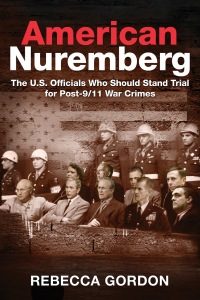
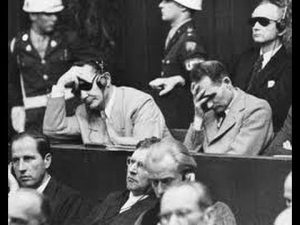
American Nuremberg: The U.S. Officials Who Should Stand Trial for Post-9/11 War Crimes
World War II started on September 1, 1939 when fascist Germany attacked its neighbor Czechoslovakia. By the end of the war six years later some 80 million people had died and the continent lay devastated. The first trials of 22 Nazi leaders, general’s and bankers wer organized by the victorious allies, America, Britain, Russia, France and took place in Nuremberg Germany. 19 were found guilty and executed. Robert H Jackson, Associate Justice of the US Supreme Court and Chief Prosecutor for United States and Nuremberg wrote then that “we must not forget that the record on which we judge the defendants today is a record in which we will be judged tomorrow.” A recent article – Crimes of the War on Terror Should George Bush, Dick Cheney, and Others Be Jailed?
Intentional war is the greatest of all crimes because it contains with it all the rest of horrible crimes. The United States of America’s intentional war against Iraq, which was motivated to the public with lies about weapons of mass destruction, and which has since spread to six other countries in the Middle East, has resulted in over 1 million deaths, driven millions more from their homes, and destroyed ancient peoples and their cultures.
The United States helped establish the international principles that guided the prosecution of war crimes when Nazi officials were held accountable for their crimes against humanity. But the American government and its legal system have consistently refused to apply the same principles to our own officials. In her book American Nuremberg, Rebecca Gordon indicts the officials who, in a just society, whould be put on trial for war crimes and crimes against humanity. She acknowledges that the U.S. government is unlikely to do this and proposes an alternative based on the Russell Tribunals held in 1967 exposing American criminality in the war against Vietnam.
Guest – Rebecca Gordon received her B.A. from Reed College and her M.Div. and Ph.D. in Ethics and Social Theory from Graduate Theological Union. She teaches in the Philosophy department at the University of San Francisco and for the university’s Leo T. McCarthy Center for Public Service and the Common Good. Previous publications include Letters From Nicaragua and Cruel and Usual: How Welfare “Reform” Punishes Poor People . Prior to her academic career, Gordon spent a few decades working in a variety of national and international movements for peace and justice. These include the movements for women’s liberation and LGBT rights; movements in solidarity with the struggles of poor people in Central America; the anti-apartheid movement in the United States and South Africa; and movements opposing U.S. wars in Iraq and Afghanistan.
——————————————————————————
Civil Liberties, Habeas Corpus, Human Rights, Military Tribunal, Political Prisoner, Prison Industry, Surveillance, Targeting Muslims, Truth to Power
Podcast: Play in new window | Download


Public Water Crisis Flint Michigan: Attorney Bill Goodman
We take another look at the public water crisis in Flint, Michigan. The legal cases being brought are being litigated at the intersection of environmental racism and capitalist austerity. Flint, a predominantly impoverished African-American city north of Detroit, had an emergency manager imposed on it by Tea Party Governor Rick Snyder. The emergency manager, acting outside of democratic controls, switched the clean water supplied to the city from the Detroit water system to the polluted Flint River claiming this would save money. Chemicals added to the filthy Flint River water caused lead from the supply pipes to leech into the drinking water. This caused lead poisoning to thousands of children in Flint. Lead poisoning is known to cause irreversible brain damage. FlintWaterClassAction.com
Guest – Bill Goodman is the attorney for a number of victims of water poisoning in Flint, Michigan. He’s a leading civil rights attorney in Michigan and the former Legal Director of the Center for Constitutional Rights.
—-
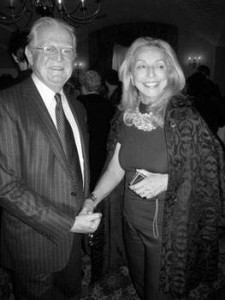
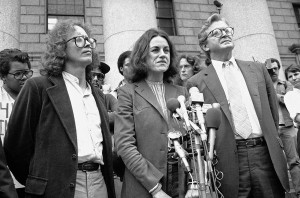
Remembering Attorney Michael Kennedy
We speak today with Bernadine Dohrn about the late Attorney Michael Kennedy. Kennedy died two weeks ago in New York City from cancer at the age of 78. He was one of the great civil rights in criminal law defense attorneys of his generation. Kennedy graduated from law school in California and began his career representing Cesar Chavez and the migrant farm workers. He also represented Black Panther leader Huey Newton and SDS leaders Rennie Davis and Bernadine Dohrn and Native American protesters at Wounded Knee, South Dakota. He later moved to New York and became staff counsel for the National Emergency Civil Liberties Committee where he represented opponents of the war in Vietnam and supporters of the Irish freedom struggle.
Guest – Bernadine Dohrn, former leader of SDS and longtime member of the National Lawyers Guild where she served a student organizer in the late 60s. Until recently Bernadine Dorh taught law at Northwestern University Law School supporting justice for juveniles.
———————————————-
CIA Sponsored Terror, Civil Liberties, Criminalizing Dissent, Human Rights, Military Tribunal, Political Prisoner, Prison Industry, Prosecution of the Bush Administration, Surveillance, Targeting Muslims, Torture
Podcast: Play in new window | Download
Updates:
- Michael Ratner: This Year Marks Three Years Julian Assange In The Ecuador Embassy
- Michael Ratner: Assange Is In Embassy Pending Extradition to Sweden Regarding Allegations. No Charges. It’s Essentially Indefinite Detention.
- Michael Ratner: Wikileaks Posts The BND Transcripts (Germany Holding Inquiry Into NSA Spying) and Searchable Database of Sony Hacked Emails
- Michael Ratner: Julian Assange Has Strong Proportionality Argument That Could Dismiss Allegations From Sweden.
- Michael Ratner: The British Have Said If Julian Leaves the Embassy He Will Be Arrested.
- Michael Ratner: CIA’s Jeffrey Sterling Sentenced to 42 Months for Leaking to New York Times Journalist
—-
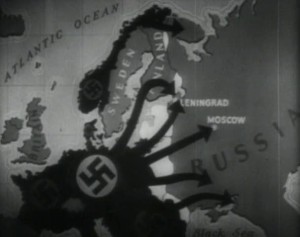
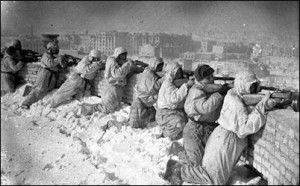
May 8 1945 – End of World War II
Our own Michael Ratner has been in Europe, specifically in Berlin in his capacity as the President of the European Center for Constitutional Human Rights. May 8 is an important day in Europe, because its the day the Nazis were defeated 70 years ago. Michael Ratner was at a celebration during this historic event. We also hear part of a famous poem titled September 1, 1939. That’s the day the Nazis invaded Poland. It’s the day that WWII started. The Nazis had vowed they were going to destroy Poland and destroy Russia. They threw everything they had into it. 150 divisions moving east toward Russia and W.H. Auden, the great poet was sitting in bar on 52nd Street and he reflected on that historic day.
—–
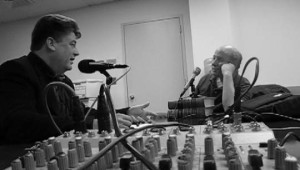
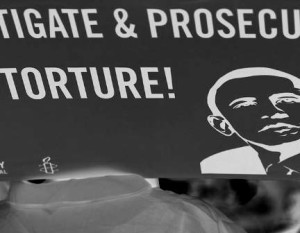
ECCHR: Bush Torture Team Travel Restriction
Today we can say with some surety that members of the torture team from Bush, Cheney, Rumsfeld, the lawyers and scores if not hundreds of CIA agents are unwilling and afraid and fear going to the European Union and countries in Europe. Why? Because they’re are afraid they’ll be subpoenaed and arrested or otherwise forced to testify about what they did when they were part of the torture team. That result is in large part due to an organization in Europe called the European Center for Constitutional and Human Rights. It along with the Center for Constitutional Rights and others have brought numerous cases throughout Europe to make sure the torture team will be indicted and certainly at a minimum some 12 years later, that they can’t travel to Europe. The ECCHR does other work as well. It litigates and brings cases against corporations involved in labor abuses throughout the world particularly in Pakistan and Bangladesh where sweatshops have killed hundreds of workers.
Guest – Attorney Wolfgang Kaleck, founded the European Center for Constitutional and Human Rights (ECCHR) together with other internationally renowned lawyers in Berlin in 2007. ECCHR is an independent organization that works with lawyers and groups around the world to take legal proceedings against state and non-state actors for their roles in crimes against international law. ECCHR also uses legal instruments to combat inhumane working conditions and other issues in the area of business and human rights. Wolfgang Kaleck has served as General Secretary of the organization since its foundation. Kaleck previously worked as a criminal law attorney at law firm Hummel.Kaleck.Rechtsanwälte, which he co-founded in 1991. Since 1998 he has been an advocate for the Koalition gegen Straflosigkeit (Coalition against Impunity) which fights to hold Argentinian military officials accountable for the murder and disappearance of German citizens during the Argentinian dictatorship. Between 2004 and 2008 he worked with the New York Center for Constitutional Rights (CCR) to pursue criminal proceedings against members of the US military, including former Secretary of Defense Donald Rumsfeld.
————————————————–
CIA Sponsored Terror, Civil Liberties, Human Rights, Iraq Veterans, Iraq War, Military Tribunal, NSA Spying, Political Prisoner, Prison Industry, Torture, Truth to Power, Uncategorized
Podcast: Play in new window | Download
Updates:
- Heidi Boghosian: Attorneys Make United Nations Urgent Appeal Request For Mumia Abu-Jamal
—-
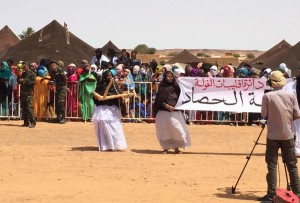

FiSaraha International Film Festival
Co-host, attorney Michael Ratner recently attended the 11th FiSaraha International Film Festival in Africa’s Western Sahara Desert. He bring us up to date on the festival and the larger issue of Sahrawi refugee camps in Southwestern Algeria. He also reminds about the anniversary of the United States’ contra torture and murder of Ben Linder in Nicaragua.
Law and Disorder Co-host Attorney Michael Ratner, President Emeritus of the Center for Constitutional Rights (CCR), a non-profit human rights litigation organization based in New York City and president of the European Center for Constitutional and Human Rights (ECCHR) based in Berlin. Ratner and CCR are currently the attorneys in the United States for publishers Julian Assange and Wikileaks. He was co-counsel in representing the Guantanamo Bay detainees in the United States Supreme Court, where, in June 2004, the court decided his clients have the right to test the legality of their detentions in court. Ratner is also a past president of the National Lawyers Guild and the author of numerous books and articles, including the books Who Killed Che? How the CIA Got Away With Murder, The Trial of Donald Rumsfeld: A Prosecution by Book, Against War with Iraq and Guantanamo: What the World Should Know, as well as a textbook on international human rights.
——
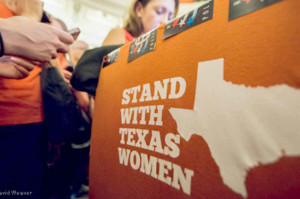

ACLU Lawsuit To Make Catholic Groups Provide Abortions To “Illegal” Immigrants
After hearing reports that Catholic bishops are prohibiting Catholic charities from allowing undocumented immigrant teenagers in their care to access contraception and abortion services—even in cases of rape—the ACLU recently filed a lawsuit to obtain federal government records. The group seeks documents related to reproductive healthcare policy for unaccompanied immigrant children in the care of federally funded Catholic agencies, which do not believe in abortion. Nearly 60,000 unaccompanied minors illegally crossed over from Mexico border in 2014. Approximately one third were young girls, an astonishing 80% of whom were victims of sexual assault.
The government contracts with the United States Conference of Catholic Bishops to care for those children until they can either reunite with a relative or face an immigration hearing. In total the Conference has received $73 million overall from the government—with $10 million allocated for the care of unaccompanied minors in 2013 alone.
The Conference has objected to a regulation proposed by the Obama administration mandating that contractors provide abortions to immigrants who have been raped. In response to the ACLU’s request, the Conference asserts that they are within their rights to exercise religious freedom while taking care of the minors.
Guest – Brigitte Amiri, Senior Staff Attorney at the ACLU’s Reproductive Freedom Project. Brigitte is currently litigating multiple cases, including a challenge to South Dakota’s law that requires women seeking abortion to first visit a crisis pregnancy center before obtaining an abortion, a restriction on Medicaid funding for abortion in Alaska, and a law in Texas that has forced one-third of the abortion providers to close their doors. Brigitte is also heavily involved in the challenges to the federal contraception benefit, and was one of the coordinators for the amicus briefs in the Supreme Court. Brigitte is an adjunct assistant professor at New York Law School, and has been an adjunct assistant professor at Hunter College.
—-
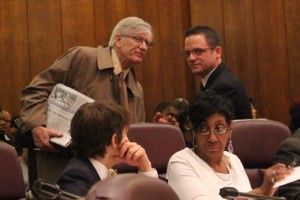
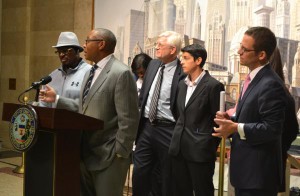
Proposal To Award Chicago Police Torture Victims Reparations
Victims of police torture under former Chicago Police Commander Jon Burge will share $5.5 million, receive an apology and have their story taught in school under a reparations package proposed recently. The proposal is expected to pass when the council votes on it this month.
More than 100 people who accused Burge and officers under his command of torture—from cattle-prod shockings, phone book beatings prods, and suffocation with bags until false confessions were given—over nearly two decades ending in 1991. While some have already settled for thousands or millions of dollars, the remaining dozens can each receive up to $100,000 under the proposed ordinance. More than $100 million has already been paid over the years in court-ordered judgments, settlements and legal fees. Amnesty International USA lauded the proposal, which it said was unlike anything a U.S. municipality has ever introduced.
Besides a provision that calls for teaching the Burge torture cases to 8th and 10th graders in public school history classes, the ordinance includes a formal apology from the City Council, and psychological counseling and other benefits such as free tuition at community colleges. In recognition that the torture, and in many cases wrongful convictions and lengthy prison sentences, has impacted victims and their families, the ordinance extends some benefits to victims’ children or grandchildren.
Burge, 67, was fired from the Chicago Police Department in 1993. He was never criminally charged with torture, but was convicted in 2010 of lying about torture in a civil case and served 4.5 years in federal custody. Still drawing his pension, he was released from a Florida halfway house in February.
Guest – Attorney G. Flint Taylor, a graduate of Brown University and Northwestern Law School, is a founding partner of the People’s Law Office in Chicago, an office which has been dedicated to litigating civil rights, police violence, government misconduct, and death penalty cases for more than 40 years
—————————————————
CIA Sponsored Terror, Civil Liberties, Criminalizing Dissent, Crony Capitalism, Habeas Corpus, Human Rights, Iraq War, Military Tribunal, Political Prisoner, Prison Industry, Targeting Muslims, Truth to Power, War Resister
Podcast: Play in new window | Download
Updates:
- FBI: If You Give Us Assata Shakur, We’ll Free The Cuban Five
- Michael Ratner: Massive CIW March St. Petersburg, Florida 2015
- Alliance For Fair Food
—-
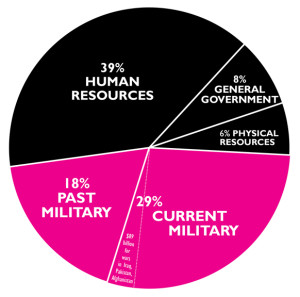
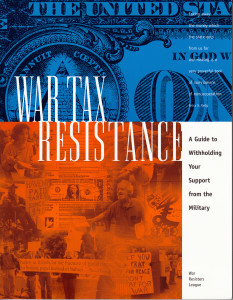
War Tax Resistance
As April 15 draws near, some Americans engage in the practice of war tax resistance, refusing to pay some or all of their federal income tax. It’s an act of civil disobedience with a proud history in this country. Notable war tax resisters included Henry David Thoreau who refused to pay his poll tax during the Mexican-American war. In the 1960s and 70s, many Vietnam war protesters engaged in the practice, including Norman Mailer, Howard Zinn, James Baldwin and Joan Baez. While individuals refusing to pay war taxes cite the refusal as a moral imperative-even citing international law to bolster this assertion—it’s not surprising that the Internal Revenue Service considers the refusal to pay such taxes as illegal.
Ruth Benn:
- In war tax resistance we tend to use the War Resisters League chart where your income tax money really goes and the calculations from the War Resisters League over the years have been around 50 percent.
- About 27 percent is current military so that’s paying for the wars and its buying the weapons for the next wars and all of those things that the Pentagon does.
- The “past military” is mainly for the debt and then the money that’s set aside for veterans.
- The nuclear weapons program which they are increasing over the coming 10 years, modernizing weapons and modernizing delivery systems. Obama is increasing that money for the nuclear weapons. That’s in the Department of Energy.
- We have the Department of Homeland Security. That is a lot of armed people also. The TSA, the militarization of the border. Homeland Security is giving those grants to local communities in the U.S. that are getting these military weapons.
- We have 500 billion this year for veterans and past military. That’s only going to add up.
- Basically, (war tax resistance) is similar to conscientious objection in terms of people who refuse to go into the military or refused the draft. So this is a refusal to have my tax dollars drafted. A refusal to pay income taxes that go into this pie of the military budget.
- There was a particular tax put on people in WW2. A stamp that people had to buy that was on their cars that supported war.
- (Famous tax resisters) We tend to go back to Henry David Thoreau of course with his one dollar that resulted in on the duty of civil disobedience.
- I always say going throughout history taxes first tend to be put on people because somebody wants to fight somebody. A government wants to go to war, that’s centuries back.
- The Vietnam War of course was the biggest time for tax resistance when it really was a strong part of the peace movement.
- The campaign during Vietnam to resist the telephone tax. A tax that was put on and raised during Vietnam. It was put on to 10 percent just to pay for the wars.
- People would owe 7.00 dollars in phone tax and some of them had their houses seized, some had their bicycles and cars seized.
- Within the network of war tax resisters and I hesitate to call it a movement these days, there are people who do a whole range of things. There are people who live on a very low income which is a legal way to do it. The cut off for filing and owing taxes is around 10 thousand dollars for a single person.
- There are people who are more adept at using credits and deductions to lower their taxable income.
- I think in ’87 I started very consistently filing and refusing to pay. You get a lot of letters. I have files and files of collection letters, of course they add up interest and penalties.
- Now I’m self-employed, the IRS can do things like garnish salaries. Over the years I figured out how to live in a way that makes it harder for them to collect. Not that they couldn’t make my life difficult.
- Mostly the IRS would like to get the money than prosecute people.
- I got active in the peace movement with the American Friends Service Committee. I’m not a Quaker myself but war tax resistance tends to known pretty well in the Quaker community.
- Usually you’ve been active (in peace movement) for a while and then you go . . oh, I’m paying for this. I’m paying for what I’m fighting against.
- nwtrcc.org
- War Tax Resisters Guide – The Book.
Guest – Ruth Benn, Coordinator of the National War Tax Resistance Coordinating Committee. Along with Ed Hedemann, she co-edited the fourth and fifth editions of the book “War Tax Resistance: A Guide to Withholding Your Support from the Military, published by the War Resisters League.”
—–
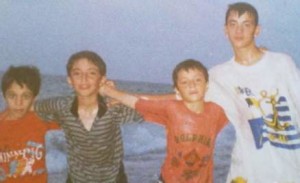
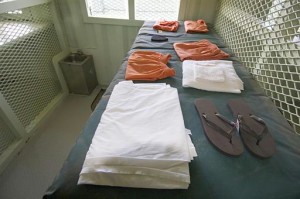
Life After Guantanamo: A Father And Son’s Story
In the weeks after September 11, 2001, the United States gave bundles of cash to Afghan war lords and the Pakistan government to assist in capturing suspected Taliban and Al-Qaeda fighters. Hundreds of men were turned over to U.S. custody often without evidence. This was an unfortunate starting point of how human lives were destroyed to as some suggest, justify an illegal war launched by the Bush Administration. Center for Constitutional Rights, senior staff attorney Pardiss Kebriaei’s Harper’s Magazine article titled Life After Guantanamo: A Father and Son’s Story traces the human toll of how her clients were wrongly imprisoned. After being picked up in Pakistan, sent back to Afghanistan, detained in Kandahar, Abdul Nasser Khantumani and his son Muhammed were interrogated by the United States and sent to Guantanamo Bay Prison in Cuba.
Attorney Pardiss Kebriaei:
- I started in 2007 and it took me year to be able to go down to the base. I went to down in mid 2008, that was the first time I met Muhammad.
- Muhammed was the son, he was a teenager and he was taken into U.S. custody. By the time I met him, he had been at Guantanamo for 6 years. 6 years without charge.
- What I say in the piece is he started breaking down, really kind of cracking in 2005.
- He was saying things like – I don’t care if I’m here another 5 years, another 10 years, I’m never getting out.
- He’d been held in solitary confinement for 2 years at that point, and there was this additional aspect of the way his relationship with his father was used to traumatize him.
- They were captured together, transferred to Guantanamo together but then, pretty much held apart in prison.
- In November of 2008 we met then in December he cut his wrists.
- He doesn’t call it suicide because he didn’t want to die. He just didn’t know what to do.
- We filed an emergency motion with the court, asking the court to move him out of solitary to get him close to his father, to do something.
- The latest hunger strike in 2013, they denied it was happening.
- Muhammed was young and he was really vocal and loud about his torture. I remember hearing him yell and scream.
- Abdul Nasser, his pain was quieter. There was a different kind of pain that left a wife behind or children behind. Abdul Nassar thought a lot about the rest of his family.
- We know that the CIA was paying millions of the dollars to the Pakistani government and Afghani war lords to profile and turn people over, basically sell them into U.S. custody.
- They came into U.S. hands because they profiled and unilaterally deemed by President Bush and Rumsfeld to be enemy combatants without any real evidence of wrongdoing.
- We know that happened and its not just groups like CCR saying that.
- The way that decisions are made and people are transferred (from Guantanamo Bay Prison) is such a lottery.
- I think Abdul Nassar appeared to be more of a burden frankly to them, because he was older and in ill health. They didn’t take him. They wanted a younger guy who they thought would be easier to resettle.
- Part of the point of the story was to shed light on just what life is like after Guantanamo.
- Abdul Nassar has not seen his wife since 2001. He hasn’t seen his other children since 2001. He hasn’t seen Muhammed since that day in 2009.
- http://ccrjustice.org/reunificationafterguantanamo
Guest – Pardiss Kebriaei, Senior staff attorney with the Center for Constitutional Rights, which she joined in 2007. Her work focuses on challenging government abuses post-9/11, including in the areas of “targeted killing“ and unjust detentions at Guantanamo and in the federal system. She is lead counsel for CCR in Al-Aulaqi v. Panetta, which seeks accountability for the killing of three American citizens in U.S. drone strikes in Yemen, and was counsel in Al-Aulaqi v. Obama, which challenged the authorization for the targeting of an American citizen placed on government “kill lists.” She represents men currently and formerly detained at Guantanamo in their efforts for release and reintegration, and represented the families of two men who died at the base in their lawsuit for accountability, Al-Zahrani v. Rumsfeld. She also represents Fahad Hashmi, who pled to material support for terrorism after years in pre-trial solitary confinement and Special Administrative Measures, in his efforts to challenge his continuing solitary confinement in a federal “supermax” prison.
——————————————————

Is Law and Disorder important to you? Consider a tax deductible donation to the show. By making a donation, you’ll be helping Law and Disorder continue to provide the consistent high quality content on some of the most pressing legal, human rights and international issues. This radio show is now a sponsored project of Fractured Atlas, a non-profit arts service organization. Contributions for the charitable purposes of Law and Disorder must be made payable to Fractured Atlas only and are tax-deductible to the extent permitted by law.
CIA Sponsored Terror, Civil Liberties, Criminalizing Dissent, Habeas Corpus, Human Rights, Iraq Veterans, Iraq War, Military Tribunal, Political Prisoner, Targeting Muslims, Torture, War Resister
Podcast: Play in new window | Download
Updates:
—–

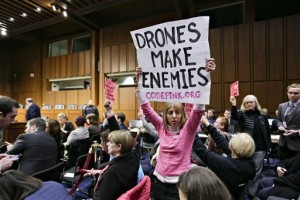
ISIS and The Anti-War Movement
Last June, the United States sent more military soldiers to Iraq and carried out airstrikes to stop the advance of the Islamic State of Iraq and the Levant known as ISIS. The US, Western Europe, Saudi Arabia and Arab Gulf policy is to overthrow Syrian President Bashar al-Assad which is also the goal of ISIS and other jihadis in Syria. ISIS’s membership may be close to 15 thousand members, half of what the CIA estimates. ISIS is led by a core of people who fought the U.S. in Iraq, fought the Iraq Army back in 2003 and then in 2011 fought in Syria. Last week our own Michael Ratner reported how the U.S. could be given leave to make war everywhere if President Obama’s request for AUMF is granted by a US Congress. What are the demands of the US peace movement?
Attorney Jim Lafferty:
- It was U.S. military strategy in the Middle East to begin with and past U.S. military action in that part of the world, especially in Iraq that provided the primary catalyst for the growth of ISIS.
- We destroyed the secular governments in Iraq and Libya that created the political space for ISIS and other right wing forces to grow.
- ISIS filled the governing vacuum took advantage of these ethnic divisions angered at the U.S. and steadily gained strength thereafter.
- If you think about it, we spent the last 40 or 50 years destroying leftist and secular, anti-imperialist movements all over that region of the world.
- Two weeks ago the Pentagon announced their sending 4000 troops with very heavy weaponry to Kuwait.
- The U.S. Army has already set up a division headquarters in Iraq. A division consists of 20 thousand troops.
- The people that are having the most success in fighting a Syrian government right now is ISIS.
- The question is not should they be stopped. The question is what will be effective in stopping them.
- There is great unity in the anti-war movement. They’ve got unified actions planned for later this month in Washington DC.
- The anti-war movement is going to be tough for the anti-war movement because the propaganda machine, the mainstream media in this country has done its job in pandering by showing despicable pictures.
- What we don’t see is Saudi Arabia our staunchest ally, executes 20-25 people by beheading every month.
- Cindy Sheehan, is setting up a Camp Casey at the Capitol. All the anti-war groups are holding a mass teach in on this very issue we’re talking about now.
- First of all a nuclear power like Israel getting all exorcised about the fact that somewhere down the road a neighboring country might have the same weapons it has.
- Pardon me if I can’t get terribly excited about that. We shouldn’t have any country in the world with nuclear weapons.
- In addition to everything else (Netanyahu) is lying about the threat if it were a threat. To come to the U.S. Congress to give that bloviating speech where he offers nothing new.
- He offers no alternative to what the administration is trying to do and is apparently making some progress in doing and is hailed as a hero by one side of the aisle is really quite appalling.
- Answer.org
Guest- Attorney Jim Lafferty, Executive director of the National Lawyers Guild in Los Angeles and host of The Lawyers Guild Show on Pacifica’s KPFK 90. 7 FM.
—-
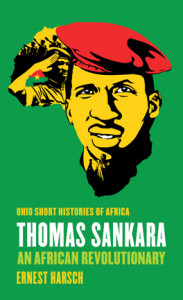
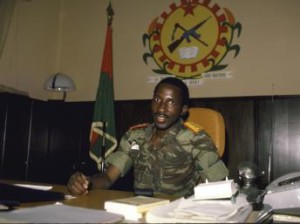
Thomas Sankara: An African Revolutionary
As president of the Burkino Faso, one of Africa’s poorest countries, Thomas Sankara was often called the African Che Guevara. In 1987, he was assassinated during a military coup that took down his government. However, Sankara’s economic and social policies left an important mark not only on his country but across Africa. Sankara was a Marxist and openly sought independence from France and at the same time he was building a pan-African unity.
Professor Ernest Harsch:
- He was the president of Burkino Faso from 1983 to 1987, a very short period of time.
- He was a revolutionary. Everybody acknowledged that at the time especially the French who greatly disliked him.
- The U.S. wasn’t too happy with him. He wanted to stop in Atlanta to meet with Andrew Young during his visit to the UN General Assembly. They didn’t allow him to make that stop. So he spoke in Harlem instead.
- It’s a small west African country, not even that many experts on Africa know that much about it. He was in power for about 4 years and he was overthrown by a military coup.
- I think for people that are interested in progressive change its always useful in seeing how others elsewhere in the world are fighting against oppression, are fighting for their rights and occasionally actually able to make some change.
- It’s also useful to learn about what kind of leadership can help people do that.
- He wasn’t a grassroots activist. He came out of the military. He was a captain. He got radicalized in the military and because of the context of his country which was extremely poor and under-developed, backward and subservient to the French who been their formal colonial power, very corrupt both military and civilian politicians over the decades.
- He’s representing a newer generation where that initial idealism about independence will bring all sorts of changes. He’s speaking to the ills of formally independent countries that are still subservient to their colonial masters and still haven’t found a way to break out of the trap of underdevelopment and external economic domination.
- He’s speaking to a new generation that still resonates today which is young people who are fed up with the way things are.
- They’re fed up with the corruption of their leaders whether they’re elected or not elected.
- You travel through west Africa you see Sankara t-shirts.
- The first time I met him was in New York. The guy was direct. He listened to what you had to say. He thought about it. I’ve never met anybody who was so quick. I mean he was witty.
- The other times I met him in Burkina. The first time was a long interview. The other times he didn’t want to be interviewed, he just wanted to talk about politics.
- Up to that time, nobody hand promoted or named so many women to cabinet position. One of them now is the current minister of justice.
- They tried to tackle some restrictions on women at the local level. It’s hard they made a small dent in it. They fought against female genital mutilation, the right to divorce by mutual consent.
- It (the country) was called Upper Volta which was a colonial name. They wanted something African and Burkina Faso, the words are from two local African languages basically means the land of the upright, or the uncorruptible people. The people are known as Burkinabe and Burkinabe comes from a third African language.
- Before he became president he was briefly a prime minister in a coalition government. His first trip was to Libya.
- Then he went to the non-alliance summit in New Delhi and gave this very fiery speech basically solidarizing with the Cuban revolution, with the Nicaraguans, with the Western Saharans, with the new Calidonians. He clearly aligned himself with the anti-imperialist, pro-third world, pro-development wing, within the non-alliance movement.
- The French didn’t like that. So, they told some their people locally, look let’s get rid of this guy.
- They had an internal coup. He was arrested. He was in prison for a while but they couldn’t sustain that. He was too popular. He became president.
- He was only 33 when he became president, so this was a youthful leadership.
Guest – Professor Ernest Harsch has taught courses on African development and political instability in the Sahel and is a research scholar affiliated with the University’s Institute of African Studies. He earned his PhD in Sociology from the New School for Social Research in New York. Throughout a professional career as a journalist, he wrote mainly on international events, with reporting on Asia, the Caribbean, and Eastern Europe, but most extensively on Africa.
—————————————————–

Please help support Law and Disorder by clicking on Fractured Atlas graphic. This radio show is now a sponsored project of Fractured Atlas, a non-profit arts service organization. Contributions for the charitable purposes of Law and Disorder must be made payable to Fractured Atlas only and are tax-deductible to the extent permitted by law. You can donate as little as 5.00 a month.

























